Vasile Pais
NL-Augmenter: A Framework for Task-Sensitive Natural Language Augmentation
Dec 06, 2021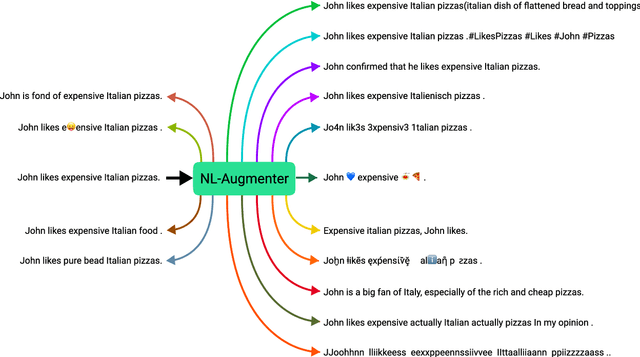
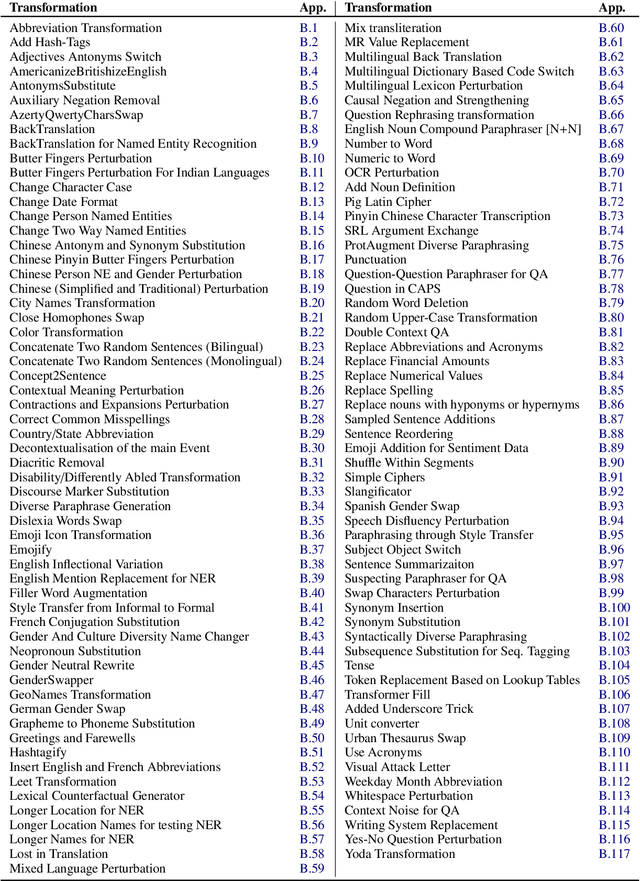
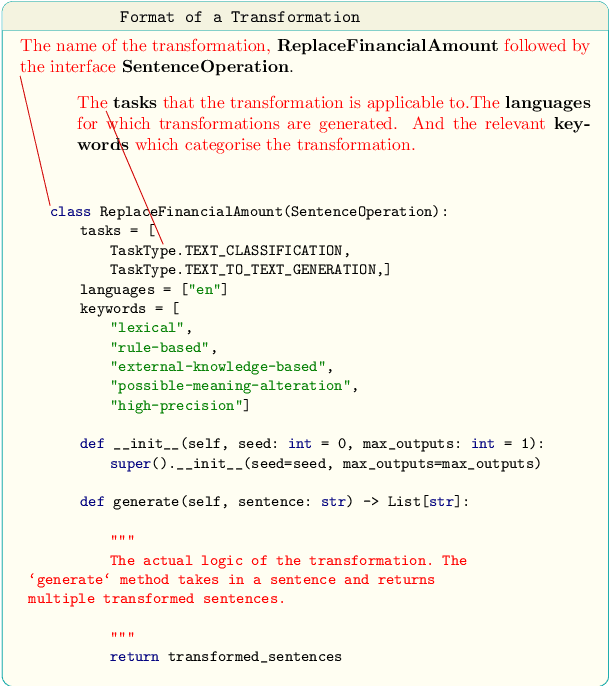
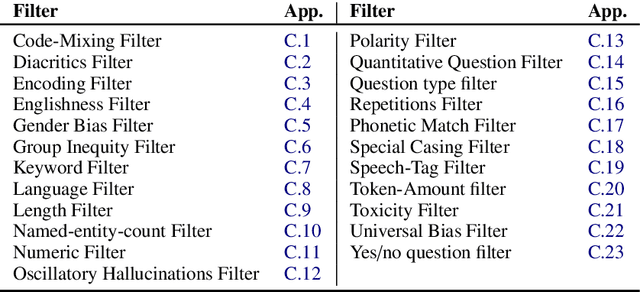
Abstract:Data augmentation is an important component in the robustness evaluation of models in natural language processing (NLP) and in enhancing the diversity of the data they are trained on. In this paper, we present NL-Augmenter, a new participatory Python-based natural language augmentation framework which supports the creation of both transformations (modifications to the data) and filters (data splits according to specific features). We describe the framework and an initial set of 117 transformations and 23 filters for a variety of natural language tasks. We demonstrate the efficacy of NL-Augmenter by using several of its transformations to analyze the robustness of popular natural language models. The infrastructure, datacards and robustness analysis results are available publicly on the NL-Augmenter repository (\url{https://github.com/GEM-benchmark/NL-Augmenter}).
PyEuroVoc: A Tool for Multilingual Legal Document Classification with EuroVoc Descriptors
Aug 10, 2021



Abstract:EuroVoc is a multilingual thesaurus that was built for organizing the legislative documentary of the European Union institutions. It contains thousands of categories at different levels of specificity and its descriptors are targeted by legal texts in almost thirty languages. In this work we propose a unified framework for EuroVoc classification on 22 languages by fine-tuning modern Transformer-based pretrained language models. We study extensively the performance of our trained models and show that they significantly improve the results obtained by a similar tool - JEX - on the same dataset. The code and the fine-tuned models were open sourced, together with a programmatic interface that eases the process of loading the weights of a trained model and of classifying a new document.
Tools and resources for Romanian text-to-speech and speech-to-text applications
Feb 15, 2018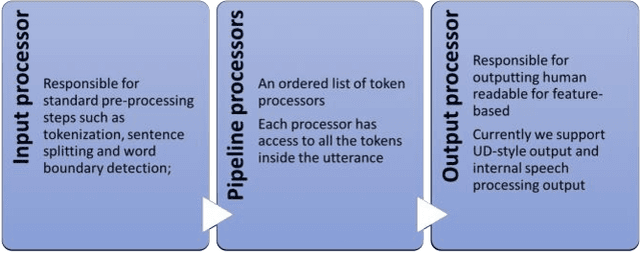
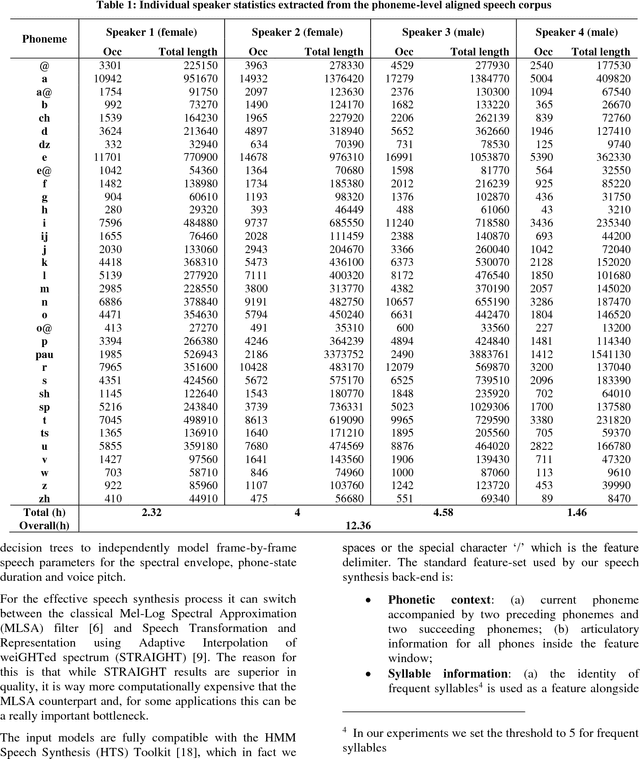
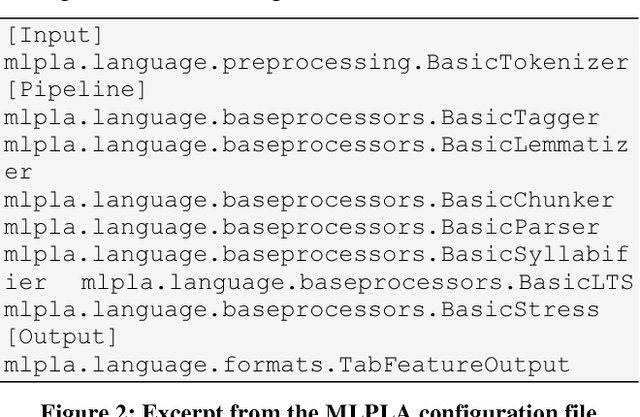
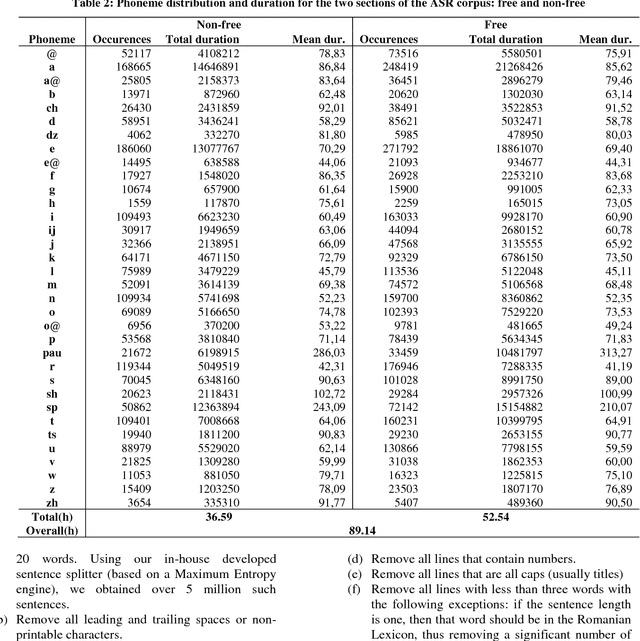
Abstract:In this paper we introduce a set of resources and tools aimed at providing support for natural language processing, text-to-speech synthesis and speech recognition for Romanian. While the tools are general purpose and can be used for any language (we successfully trained our system for more than 50 languages and participated in the Universal Dependencies Shared Task), the resources are only relevant for Romanian language processing.
 Add to Chrome
Add to Chrome Add to Firefox
Add to Firefox Add to Edge
Add to Edge